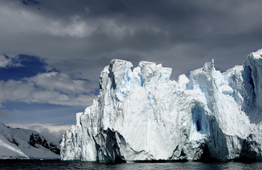Leadership in Politics and Science within the Antarctic Treaty
Date & time
Location

JOHN DUDENEY, Deputy Director, British Antarctic Survey (ret)
With Commentary by HENRY POLLACK, Professor of Geophysics, Department of Geological Sciences (ret) and LANA POLLACK, Chair, International Joint Commission
Co-sponsored by: the Department of Geological Sciences, Environmental Law & Policy Program, the Department of Atmospheric, Oceanic & Space Sciences, and the School of Natural Resources & the Environment
Abstract: For over 50 years the Antarctic has been governed through the Antarctic Treaty, an international agreement between 46 nations of whom 28 Consultative Parties undertake a management role. These Parties have qualified for their position on scientific grounds. The presentation will examine both the scientific and political outputs of all the Consultative Parties over the last 20 years and demonstrate that a small number of original Parties not only provide most of the science but also set the political agenda for the continent. Generally those countries producing the most science papers have the greatest political output as well. None of the most recent signatories to the Treaty appear to play a major role in managing Antarctica. The Treaty prides itself on its scientific credentials, but while nations have to demonstrate a substantial science programme to gain consultative status, there is no process to review science quality or commitment thereafter. The presentation will conclude by highlighting the reputational risk of this policy lacuna and will suggest a way in which it could be addressed.
Funding support for STPP Lecture Series provided by the Herbert H. and Grace A. Dow Foundation.